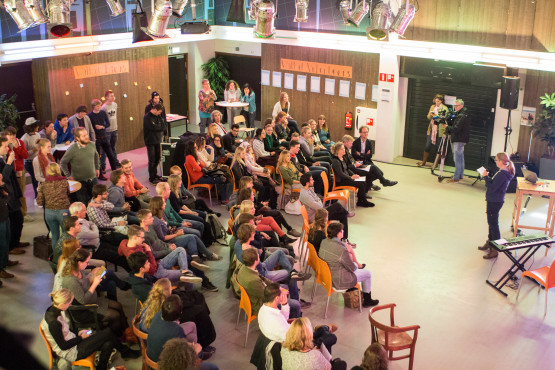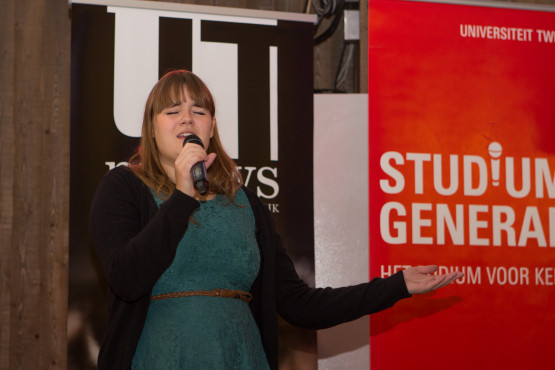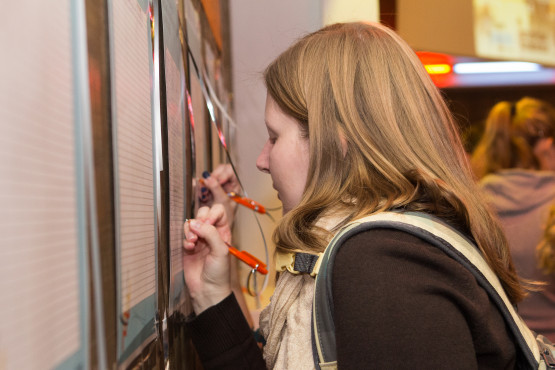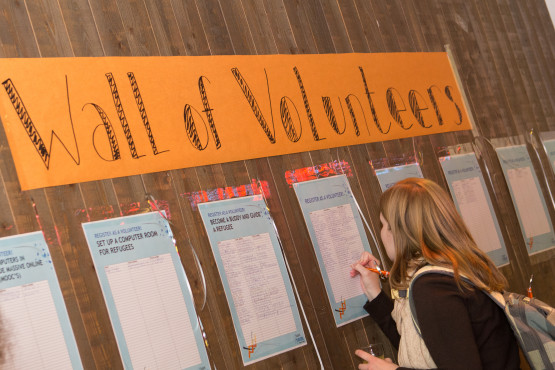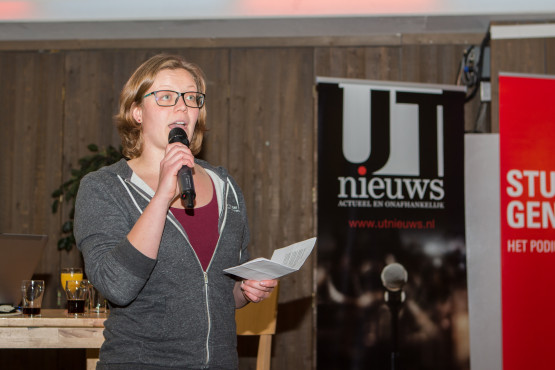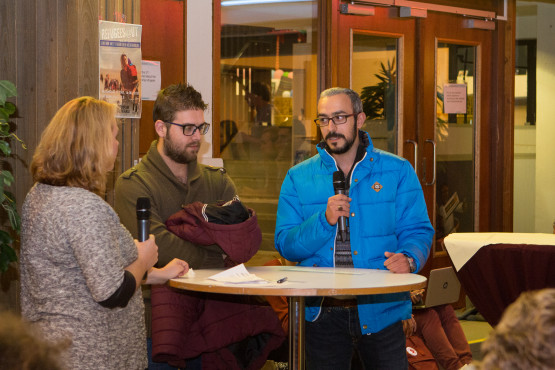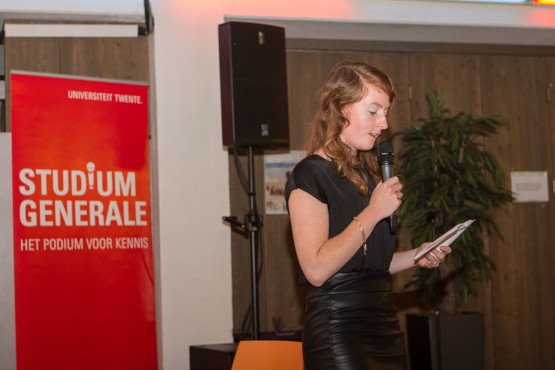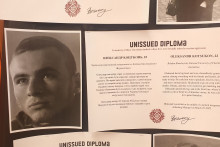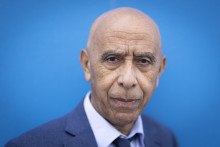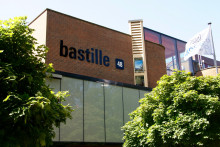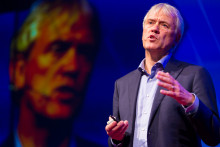'The point of this gathering is not to discuss whether it´s good that refugees are coming to the Netherlands, but to figure out how people at the UT can help them’, Eline van Hove from the Student Union opened the event, which was also visited by refugees from Syria.
Lack of information
To know how we can help, we first need to know what the refugees need us to help with. To find an answer to that question, Wahbé Rezek made a short film, interviewing five highly educated refugees that are currently beginning their new lives in the Netherlands.
As you can see in the video below, refugees mainly suffer from the lack of information. They don´t know how to find Dutch courses or continue their studies and they don´t receive much help in finding the needed information.
'There seems to be a lack of interest in refugees,' stated Rezek, the author of the video. 'There are doctors and scientists and also the future scientists, who can contribute to this society. Wouldn’t it be weird not to help them? There might not be that many highly educated refugees, but there are some and they count.'
UT is ready to help
A few refugee students also found a place at the University of Twente. They received help from UAF, The Foundation for Refugee Students, which provides refugees with financial support and counseling for their studies at a university. 'At the moment there are 7 refugee students at the UT, but we expect that number to grow,' clarified Hemo Oumenad, who is a UAF coordinator at the UT. 'We are prepared to help.'
That may be true, but unfortunately there are obstacles in the way. 'You see society struggling with a problem they didn´t see coming. The current system doesn´t comply with the current situation and the Dutch government has problems adapting,' explained Victor van der Chijs.
'After we announced that refugees are welcome here, we immediately ran into a lot of rules that we didn´t expect and we are at the same point we were a few weeks ago, which is frustrating’, Van der Chijs continued. ‘The government in the Hague is still considering how to adapt the rules. In the end, we might have to break the rules. We want to do our part here.'
Pitched ideas
The willingness to offer help was also obvious from various pitches, presented by UT students and staff members. For instance, Student Union is planning to start extended Buddy Program, so UT students and employees can help guide refugees at the university.
A student, René Heijdens, suggested to collect old computers to donate, and therefore allow refugees to use already available online courses. Other suggestions included organizing a sports day for refugees or visiting a AZC Azelo, a center for asylum seekers in Twente that is open for public on Thursday mornings, allowing anybody to come and drink coffee with local residents and perhaps learn what they need the most.
Two refugees, currently living in the AZC Azelo, also visited the event. Both of them escaped from Syria to avoid political persecution and ever-present danger in their home country. 'It’s great to see so many people volunteering to help. We wondered how Dutch people might accept us and this answers a lot of our questions. Thank you so much. It´s highly appreciated.'
